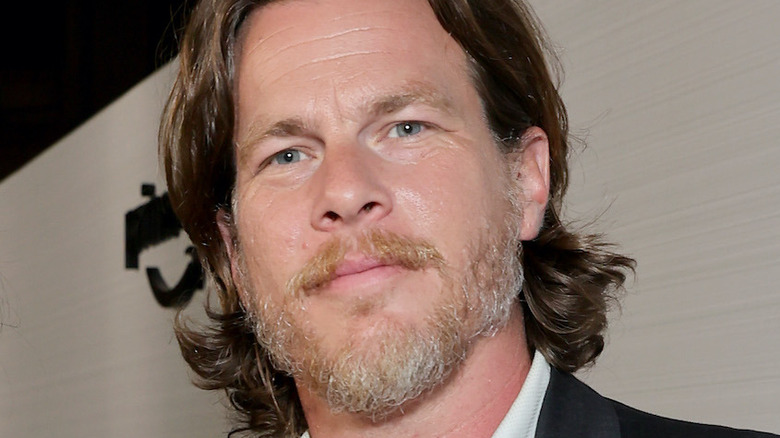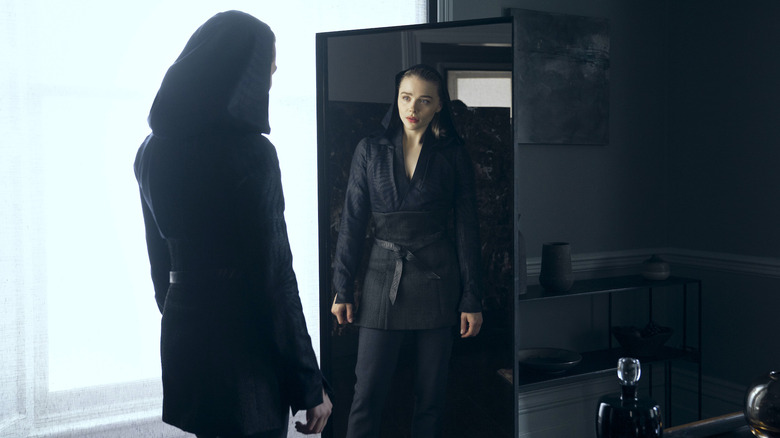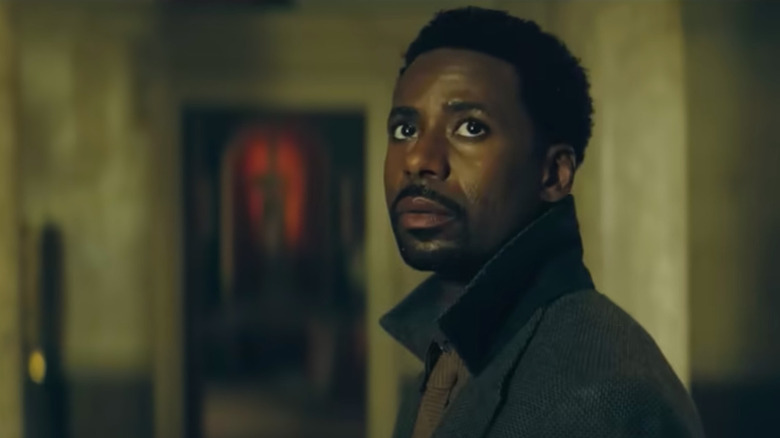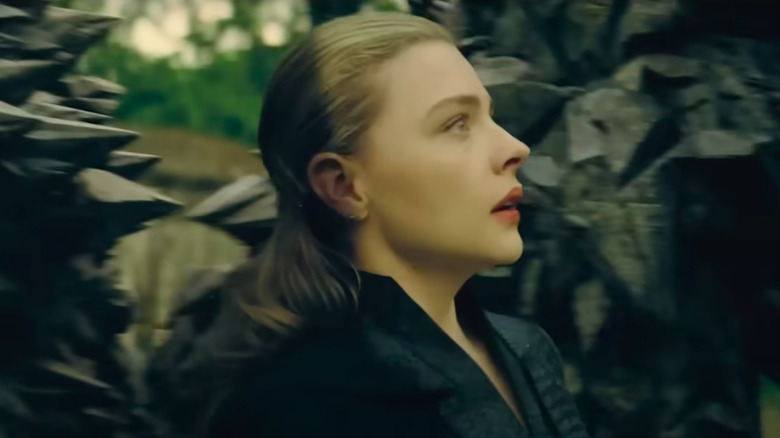Jonathan Nolan And Gary Carr On The Complexity And Intrigue Of Prime Video's The Peripheral - Exclusive Interview
Jonathan Nolan is responsible for inventing some of the most fascinating worlds in pop culture. He co-wrote movies like "The Prestige," "The Dark Knight," and "Interstellar," and he co-created the sci-fi series "Westworld," which recently wrapped up its fourth season on HBO. Now, he's using his talents to help usher the Prime Video series "The Peripheral" to the screen as an executive producer.
Based on the novel of the same name by William Gibson, "The Peripheral" centers on Flynne Fisher (Chloë Grace Moretz), a young woman from the rural American South whose unassuming life in the year 2032 is upended when she's given the opportunity to test a cutting-edge virtual reality game that takes place in 2099 London. It's there she meets Wilf (Gary Carr), a character who confirms what she already suspects: The far future she travels to when she puts on the headset isn't a game — it's real.
Wilf is one of the few reliable figures Flynne encounters in 2099, yet neither she nor viewers are entirely sure if she can trust him. It's a quality that Carr leans into in his performance, ensuring Wilf's presence feels both reassuring and mysterious. In an exclusive conversation with Looper, Nolan discussed what resonated with him about "The Peripheral," and Carr shared his thoughts on bringing his enigmatic character to life.
Adapting William Gibson
Jonathan, what spoke to you about "The Peripheral" that made you want to sign on as an executive producer?
Jonathan Nolan: Well, I've been shamelessly ripping off William Gibson's work for decades, as is everybody else. I'm fascinated by the fact that no one had managed to adapt his work, other than the real world. When [executive producer] Vincenzo Natali came to us with "The Peripheral," we couldn't possibly say no.
That book — unlike many of the books that I first read when I was a teenager, "Count Zero," "Neuromancer," and all the rest of the incredible Gibsonsonian world-building epics — "The Peripheral" starts a little closer to home. For me, as an English kid transplanted to America, and then back and forth to the point of apoplexy, the idea of doing a narrative that bounced back and forth between near-future America and far-future London was impossible to resist.
Playing an enigmatic character
Gary, your character comes across as a very warm and inviting person, but he's also a bit of an enigma. What was your approach to playing him?
Gary Carr: One thing that struck me in the book first and then the script was that Wilf is very still. I've never played a character that was so still and [had] so much stuff going on, and doesn't have an outlet or anyone to discuss it with. What you see on the surface is not what's going on underneath. That was really intriguing about the character. For an actor, that's a very attractive thing to see in characters in a script.
My whole approach was to honor that, honor the great work that William [Gibson]'s done and the great work that [creator] Scott [Smith] has done, and to honor the vision of [Nolan] and the team and [executive producer] Lisa [Joy] and everyone. That was my whole [approach], to do what I saw in the script. I didn't have to do much in terms of character-building; it was all very much there already.
A show that explores 'questions about the future'
Jonathan, you've had plenty of experience in the sci-fi genre. How did everything you've done previously impact how you shaped "The Peripheral?"
Nolan: As time goes by, I've come to appreciate [that] the questions about the future are, in many ways, marginal ones. That's one of the things that [William] Gibson weaves into the narrative ... To look back at those things and think, "There's going to be one event that extinguishes life," the world is much more complicated than that. It's these small things that collide with each other. It's one of the ideas from the book that I really resonated with: It's not any one thing; it's this cascade of smaller events that plow into each other that create this ripple effect.
We started developing this book a couple of years ago before the pandemic. There is a pandemic featured in the book. We have asked Gibson to tell us what will happen in the future, and he steadfastly refuses. But it's this idea that the end of the world will be not a whimper and not a bang, but it'll be complicated, sophisticated, subtle. That's one of the ideas in the book that we were drawn to.
New episodes of "The Peripheral" arrive every Friday on Prime Video through December 9.
This interview was edited for clarity.



